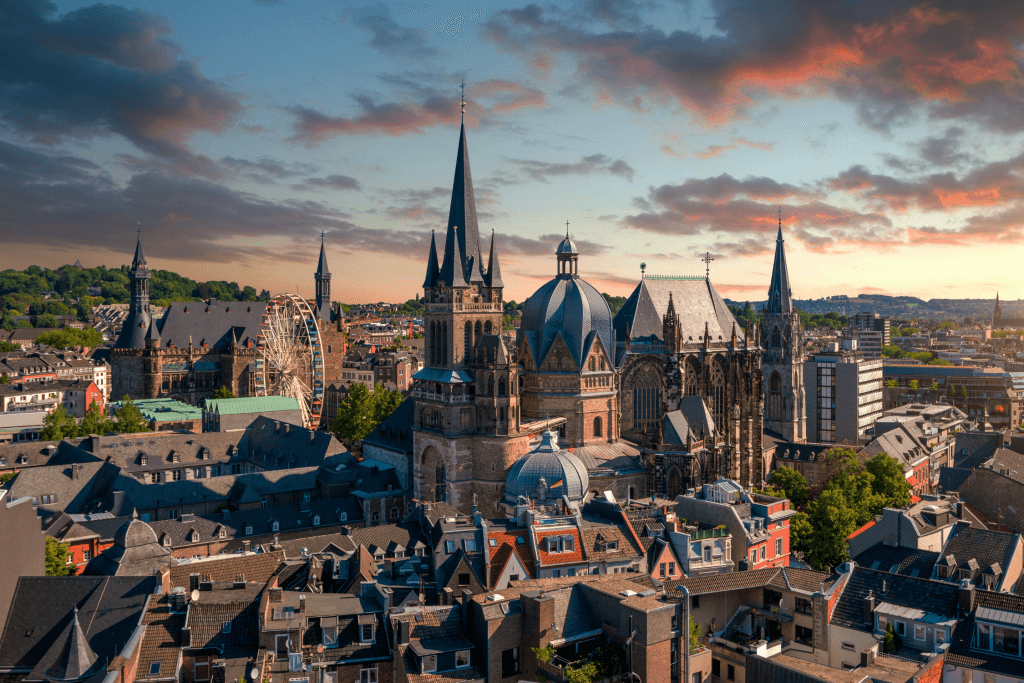4.6 billion euros were invested in German start-ups in 2018 – more than ever before. Compared to the previous year, this means a growth of seven percent, as the annual start-up barometer of Ernst & Young (EY) shows. Besides, it may not come as a surprise that more than half of the investments went to start-ups located in Berlin: The strength and importance of Berlin as the central hub of the German start-up scene is widely known. For several years the city has drawn start-ups and investors from all over the world, establishing itself as one of the world’s hottest start-up capitals with success stories such as Delivery Hero and N26. However, Germany is Europe’s largest economy and the amount of investment in start-ups into other regions such as Bavaria, Hamburg, and North Rhine-Westphalia have been increasing significantly in comparison to previous years. For start-ups that are thinking about entering the German market, the question remains, whether Berlin is always the best starting point. Here are a few reasons why looking beyond the capital city might be worthwhile.
Munich

The start-up scene in Bavaria has been booming in recent years with the Bavarian capital Munich being the biggest contributor to the recent success. Munich is home to several of Germany’s biggest international corporates such as the financial service company Allianz, the car manufacturer BMW, and the global player Siemens. Many of these companies have established their own incubators located in Munich downtown such as the BMW Start-up Garage, which makes it easy for new start-ups to dive into the existing ecosystems. The automotive industry is the city’s leading sector by means of a number of employees and turnover. The automotive cluster in Munich consists of companies and institutions along the entire mobility value chain. Other strong industry sectors include the healthcare and Fintech sector, all backed up by strong industrial corporates that are present in the region. In fact, Bavaria had the highest investment volume in 2018 for start-ups operating in the health sector with a total of 131 million euros invested, surpassing Berlin.
Munich also offers a high standard of education and has a strong focus on research and development with the two most renown universities located in the city, Technical University Munich and Ludwig Maximilian University. Both universities have a strong track record in research and count as top universities in Germany as well as Europe. In addition, the German research institute Fraunhofer society is headquartered in Munich, giving research focused start-ups a perfect testbed for development and piloting.
To support the start-up ecosystem, the city of Munich and UnternehmerTUM, the organization of the Technical University of Munich offering start-ups services from the initial idea to IP, is building a new innovation and business creation center, the Munich Urban Colab. Opening in 2020 the overall goal is to make Munich the world leader in the development of Smart City Solutions.
Hamburg

Hamburg, the second biggest city in Germany and one of the 16 federal states, is one of the largest economic centers in Northern Europe providing a large talent pool for companies of all sizes. The Hansa city at the river Elbe has managed to create a fast-growing start-up community next to its more traditional businesses. Hamburg is well known for its aerospace, trade, and media clusters also far beyond German borders. Additionally, due to the Port of Hamburg being Germany’s biggest seaport, the maritime and logistics sectors are flagship industries of the area.
Overall, the service and commercial sectors make up almost 40 percent of the industry distribution of the start-up scene in Hamburg. There are over 20.000 media and IT businesses in Hamburg, including the German headquarters for Twitter, Facebook, Google, and Microsoft – just to name a few. This has to implications for start-ups as well: the environment for establishing a business in Hamburg seems to work out very well and the presence of global software giants offers great opportunities for collaboration between corporate and start-ups operating in the digital businesses sector. The city is also home of prestigious news outlets such as Die Zeit and Der Spiegel and other large publishing and media houses. As a result, Hamburg offers an excellent environment for start-ups operating in the sector that can tap into existing networks and profit from the talent pool created by the big players.
The growth of the start-up ecosystem can also be seen in the number of coworking spaces operating in the city. Hamburg provides more than 60 coworking spaces across the city, ranging from the Betahaus, the very first coworking space in the city to the recently opened WeWork offices with more than 1,400 workplaces.
North Rhine-Westphalia

North Rhine-Westphalia, in short NRW, is home to 17.9 million inhabitants, with more than 10 million living in Germany’s biggest metropolitan area, the Rhine-Ruhr. The biggest advantage is that cities in that area incredibly well connected and close to each other – big cities like Dortmund, Essen, Düsseldorf, Cologne can all be found within a radius of 100 km. NRW is known as the industrial heartland of Germany, with headquarters of companies such as Deutsche Telekom and ThyssenKrupp located in the area. As a result, it is no wonder that in recent years the start-up scene in NRW has become one of the most soaring in whole Germany.
The ecosystem in North Rhine-Westphalia has been evolving significantly in the last five years. According to the annual start-up barometer, the strongest percentual growth in the investment volume was recorded last year in NRW with the investment volume increasing by 154 percent to 243 Million euros. The federal state also recorded a remarkable growth in the number of transactions, from 54 to 60 percent on a year-to-year basis. NRW also surpassed Berlin in the total number of start-ups – 19 percent of the start-ups located in Germany are operating in NRW.
Most start-ups in the region focus on business-to-business and accordingly 73.4 percent of the turnover of the start-ups is generated in the B2B sector, which is above the national average of 67.7 %. Start-ups in the region have also a strong focus on Artificial Intelligence with 21 percent of them having a business model related to this topic – this also surpasses the national average of 16.1 percent.
Interested in more?
If you are interested in hearing more about how to enter the biggest market in the Europe, we are hosting the workshop Cracking the German Market – Checklist for Startups at Arctic15 that will not only cover different locations to consider but also topics such as market entry strategy, business culture, financing and many more.
In addition, applications for the Startup Germany Tours to Munich and NRW area is currently open for Finnish startups. During the tours, the participants have an excellent possibility to learn more about the area as well as network with different players in the ecosystem. There is no participation fee for selected start-ups. More information and application here.
About the Authors
The article is written by Sara Karbasi, David Wunder from German-Finnish Chamber of Commerce (AHK Finnland). Reach out to them for more details.





